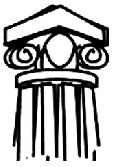题目内容
Homesick is a compound word made up of HOME and SICK.You know what each word means on its own, of course.But think about what the words mean when they are used together.Homesick means SICK FOR HOME.
Now think for a minute about SEASICK.If you change the word home in the definition(释义)to the word sea, would the definition fit SEASICK? Seasick means SICK BY THE MOVEMENT ON THE SEA. When you are homesick ,the only place you want to be is at home.When you are seasick, the last place you want to be is at seA.
Have you ever heard of a person being heartsick? Heartsick doesn’t mean that something is wrong with a person’s heart.people are heartsick when they are hurt deep inside and when they feel as if their hearts are broken.
But, on the other hand, we have such compound words as handshake, handstand, and handbag.Perhaps you may write definitions for them.
1.The word SEASICK means“______”.
A. to be eager to go to the sea
B. what has nothing to do with the sea
C. to be sick because of the sea
D. that the sea is terrible
2.When we say a person is heartsick, we mean that________.
A. his heart is sick
B. his heart needs testing
C. he’s sorry at heart
D. he’s terribly disappointed and sad、
3.“The last place you want to be” is_________.
A. where you want to be most
B. where you want to be least
C. where you go the last
D. the last place you go to
4.The definitions of handshake, handstand and handbag are_______.
A. easy to know
B. difficult to know
C. impossible to learn
D. unnecessary to learn
阅读下列短文, 从每题所给的四个选项(A、B、C和D)中, 选出最佳选项。
A
Greco-Roman Festival Friday, April 28th! As a member of the group, you will take part in at least one of the following activities. |
Activity I: Compete in an Olympic event
Sign up with your English teacher, and remember space is limited for each event. See the following list:
● Hercules Throw — Throw a football through a hoop (铁环) 20 feet away.
● Three-Headed Race — Three people line up with touching legs tied. Then they run the distance of the gym.
● Toga-Barrow Race —This is like a wheelbarrow race while wearing your toga (宽外袍). (Runners hold their partners’ feet while they walk on hands.)
Activity II: Make Greek or Roman food
Mrs. Jones has a list of recipes (食谱) from ancient Greece and Rome. Remember to give the food you make a unique name. For example, call your chocolate cake Zeus’s Delight.
Activity III: Create a work of art for the museum
Be sure your artwork reflects ancient Greek or Roman culture. Artwork may include sculptures, paintings, drawings or models. The museum is a great place to show off your artistic talent.
Activity IV: Perform an original play, song, or dance for the talent show
Rewrite your favorite Greek myth (神话) using modern language, or change the words of a popular song to tell a Greek or Roman tale. Gather your creative energy and send your ideas to your English teacher for approval.
Activity V: Come to the Toga-Tying party
Since the ancient Greeks should inspire your dressing for the event, feel free to attend the festival in a toga. Learn to tie your toga. Thursday, April 27th. After school in the gym.
Group Number | 1:00 pm -1:25 pm | 1:30 pm -1:55 pm | 2:00 pm -2:25 pm | 2:30 pm -3:30 pm |
I | Activity I; Place: Gym | Activity III; Place: Library | Activity II; Place: Cafeteria | Activity IV; Place: Library All teams! Hurry! No seats reserved. |
II | Activity II; Place: Cafeteria | Activity I; Place: Gym | Activity III; Place: Library | |
III | Activity III; Place: Library | Activity II; Place: Cafeteria | Activity I; Place: Gym |
1.We can learn from Activity I that _____.
A. players wear a toga for the football throw
B. different physical competitions are offered
C. Mrs. Jones is the judge of the competitions
D. skills in throwing are needed in these games
2.Which piece of art would be shown in the museum?
A. A painting of ancient Chinese coins.
B. A drawing of ancient Greek buildings.
C. A sculpture of an ancient Indian athlete.
D. A model of an ancient Egyptian sculpture.
3.Right after showing the artwork, Group II may go to _____.
A. make Greek or Roman food
B. compete in Olympic events
C. perform at the talent show
D. join the Toga-Tying party
4.The text is most probably _____.
A. a poster for school activities
B. a want ad for student volunteers
C. an introduction to the Greco-Roman Festival
D. a notice about arrangements for Olympic events


